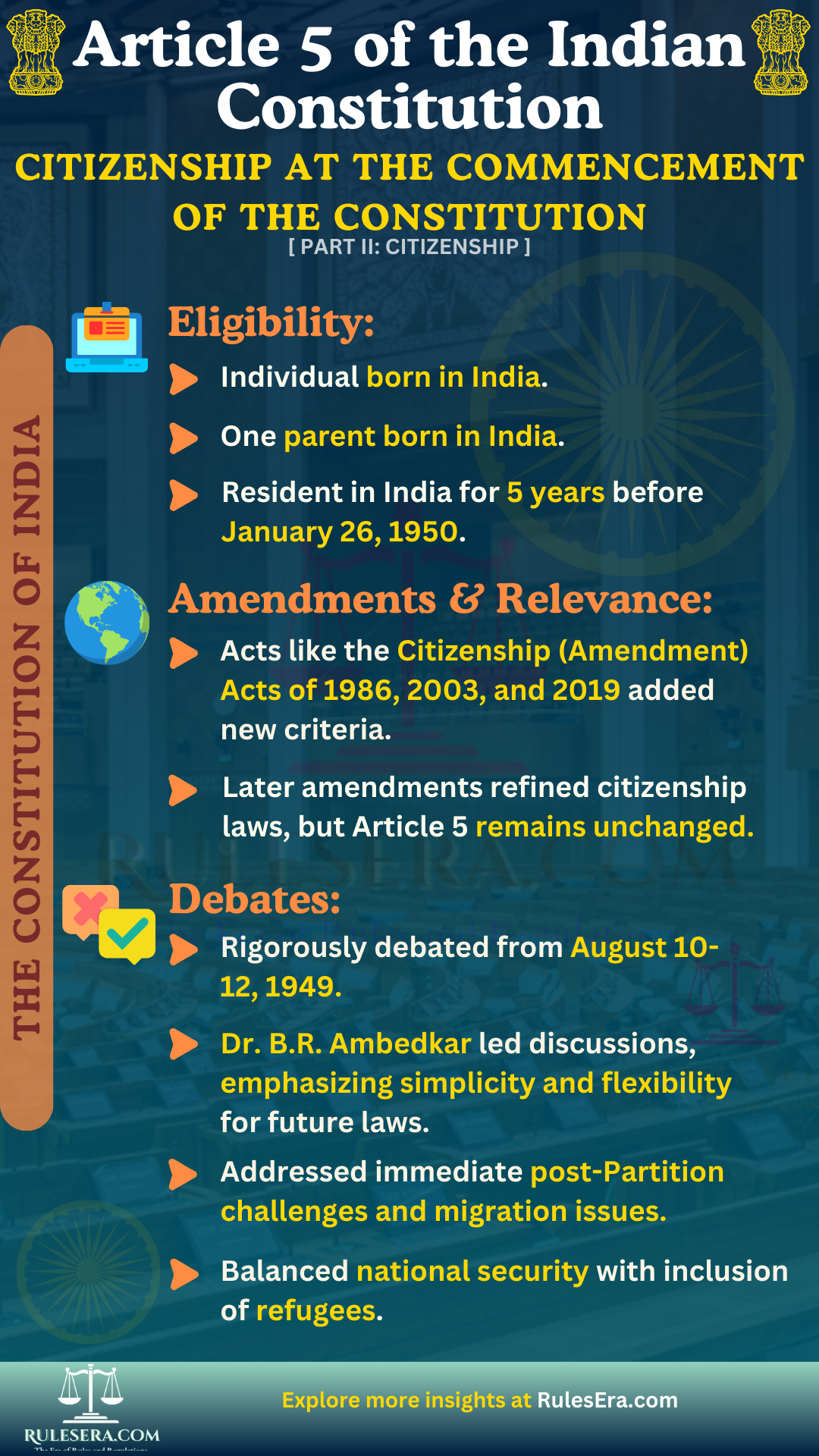Part II: Citizenship
Article 5: Citizenship at the Commencement of the Constitution

Original Article:
At the commencement of this Constitution, every person who has his domicile in the territory of India and—
- (a) who was born in the territory of India; or
- (b) either of whose parents was born in the territory of India; or
- (c) who has been ordinarily resident in the territory of India for not less than five years immediately preceding such commencement, shall be a citizen of India.
Explanation:
The commencement of the Constitution of India on January 26, 1950, marked a critical moment in the legal framework of citizenship. Article 5 outlines the criteria for acquiring Indian citizenship at that time. This provision addresses individuals residing within the territory of India and sets forth conditions for citizenship recognition:
- Clause (a): A person born within the territorial boundaries of India automatically qualifies for Indian citizenship.
- Clause (b): This provision extends citizenship to those who have either parent born in Indian territory.
- Clause (c): Individuals who had been "ordinarily resident" in India for at least five years prior to the Constitution's commencement are eligible.
Amendments and Interpretation:
While Article 5 addresses citizenship at the time of the Constitution's commencement, later amendments have refined citizenship. The Citizenship (Amendment) Acts of 1986, 2003, and 2019 introduced new conditions for acquiring or losing citizenship, but did not alter the provisions of Article 5.
Real-Life Application:
During the Partition, many individuals who were born in undivided India but moved to Pakistan could claim Indian citizenship under Article 5 if they returned to India before the Constitution's commencement. Such cases highlight the article's significance in shaping Indian nationality during intense migration and demographic changes.
Legislative History:
Article 5 of the Indian Constitution was debated on August 10-12, 1949, before being incorporated. During the debates, Dr. B.R. Ambedkar introduced amendments to clarify the framework for citizenship.
Debates and Deliberations:
The Constituent Assembly debates on August 10-12, 1949, focused on crafting citizenship provisions. Concerns about the automatic granting of citizenship were raised, and Prime Minister Jawaharlal Nehru and Dr. Alladi Krishnaswami Ayyar emphasized fairness and practicality in the provisions.
Frequently Asked Questions (FAQs):
Article 5 defines who would be recognized as Indian citizens at the time of the Constitution's commencement based on domicile, birthplace, and residency requirements.
A person born within the territorial boundaries of India automatically qualifies for Indian citizenship under Article 5, provided they were domiciled in India at the Constitution's commencement.
In the Constituent Assembly debates, Dr. B.R. Ambedkar and Dr. P.S. Deshmukh discussed criteria for citizenship, with concerns raised about making citizenship too easily attainable and national security.
While Article 5 itself remains unchanged, subsequent Citizenship (Amendment) Acts introduced new conditions for citizenship acquisition but did not alter Article 5’s original provisions.